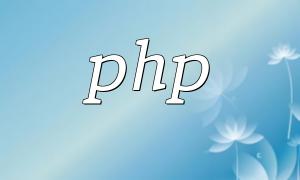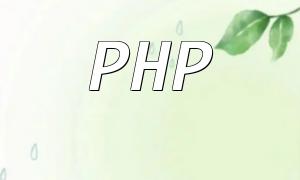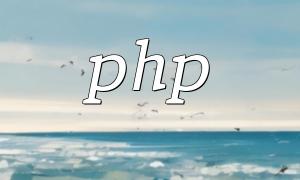With the rapid development of the internet, website performance optimization has become a key factor in improving user experience and website competitiveness. Among various optimization techniques, PHP static caching is widely used, as it can significantly improve website loading speed and reduce server load, thus enhancing overall performance. This article will explore the specific impact of PHP static caching on website performance and present a code example to help developers better understand the implementation of this technology.
PHP, as a dynamic scripting language, needs to dynamically generate HTML content for each request, which can burden the server, especially for high-traffic websites. PHP static caching solves this by saving dynamically generated pages as static HTML files, so that subsequent user requests can directly return the static file, greatly improving website response speed and performance.
PHP static caching offers several significant advantages:
Since static pages do not need to be dynamically generated again, PHP static caching can significantly reduce the processing time for each request. This is especially beneficial for high-traffic websites, as static caching can improve page loading speed and enhance the user experience.
Once a page is cached statically, the server does not need to execute PHP code or query the database again, directly returning the static HTML file. This reduces the computational burden on the server. As website traffic increases, server load is effectively controlled, ensuring stable website operation.
Static pages load faster, which is crucial for search engine optimization (SEO). Search engines consider page load speed as a ranking factor. Therefore, using PHP static caching to optimize website loading speed helps improve search engine rankings, increasing visibility.
Here is a simple PHP static caching implementation. Assume we have a dynamic page, index.php, which we need to static cache:
<?php<br>// Check if the static file exists, if not, generate it<br>$staticFile = 'static/index.html';<br>if (!file_exists($staticFile)) {<br> ob_start();<br> // Dynamically generate the page content<br> include 'index.php'; // Include the dynamic page content<br> $content = ob_get_clean();<br> file_put_contents($staticFile, $content);<br>}<br>readfile($staticFile);<br>?>This code example first checks if the static file exists. If the file does not exist, PHP dynamically generates the page content and saves it as a static HTML file. After that, user requests will directly return the static file, thus improving response speed.
PHP static caching can effectively enhance website performance, reduce server load, improve user experience, and boost SEO rankings. By properly applying this technology, developers can ensure that the website performs well even under high traffic.
When designing a website, developers should consider PHP static caching as an important method of performance optimization, thus improving website stability and user satisfaction, and enhancing the overall competitiveness of the site.









